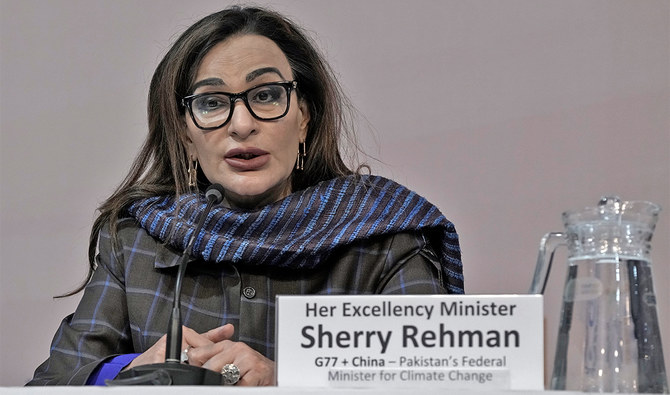SHARM EL-SHEIKH, Egypt: Pakistan’s climate minister Sherry Rehman said on Thursday developing countries would continue to press hard for a deal on the issue of ‘loss and damage’ at this year’s UN climate talks in Egypt.
Rehman told reporters that the group of countries she chairs, known as G77 and China, wants “at the very least a political announcement of intent” on rich polluters providing new financial aid to poor nations for the effects of global warming.
She made clear that she didn’t expect “a slew of finance” to result from the meeting in Sharm el-Sheikh but added that “if this continues to be kicked down the road we will see it as a climate justice denied.”
Rehman said she was aware that some countries “are anxious about liabilities and judicial proceedings.”
“I think we can work around all those anxieties,” she said. “The idea here is not to make any one country or group of countries uncomfortable or put them in an adversarial position.”
But she said the recent devastating floods in her own country, causing tens of billions of dollars in damage, showed how people who have done little to cause climate change are being hit hard.
“That dystopia that came to our doorstep will come to everyone’s,” she said. “So before it comes to that point, let’s learn to work together and bring some focus and real ambition for climate justice and delivery on joint goals.”












